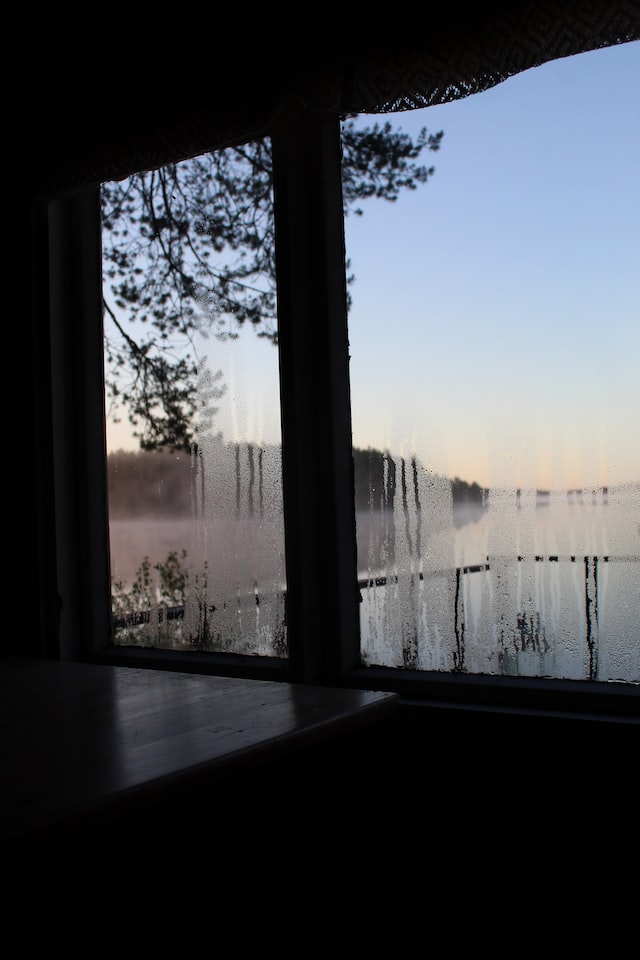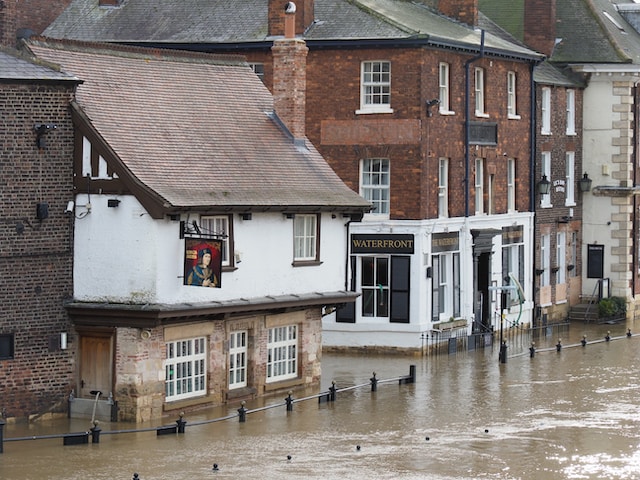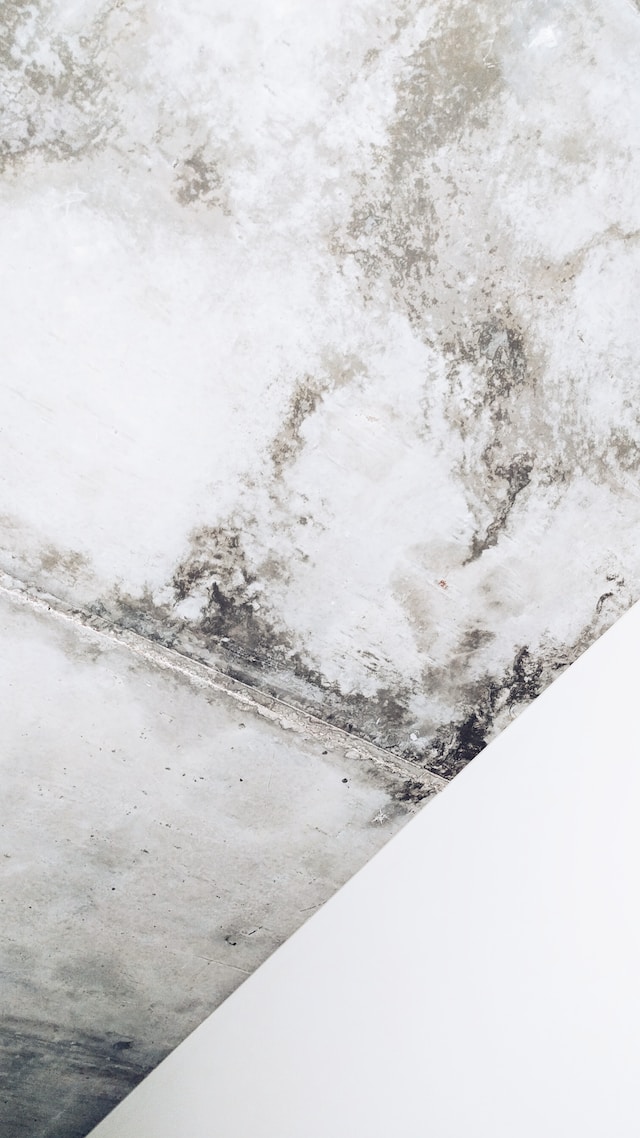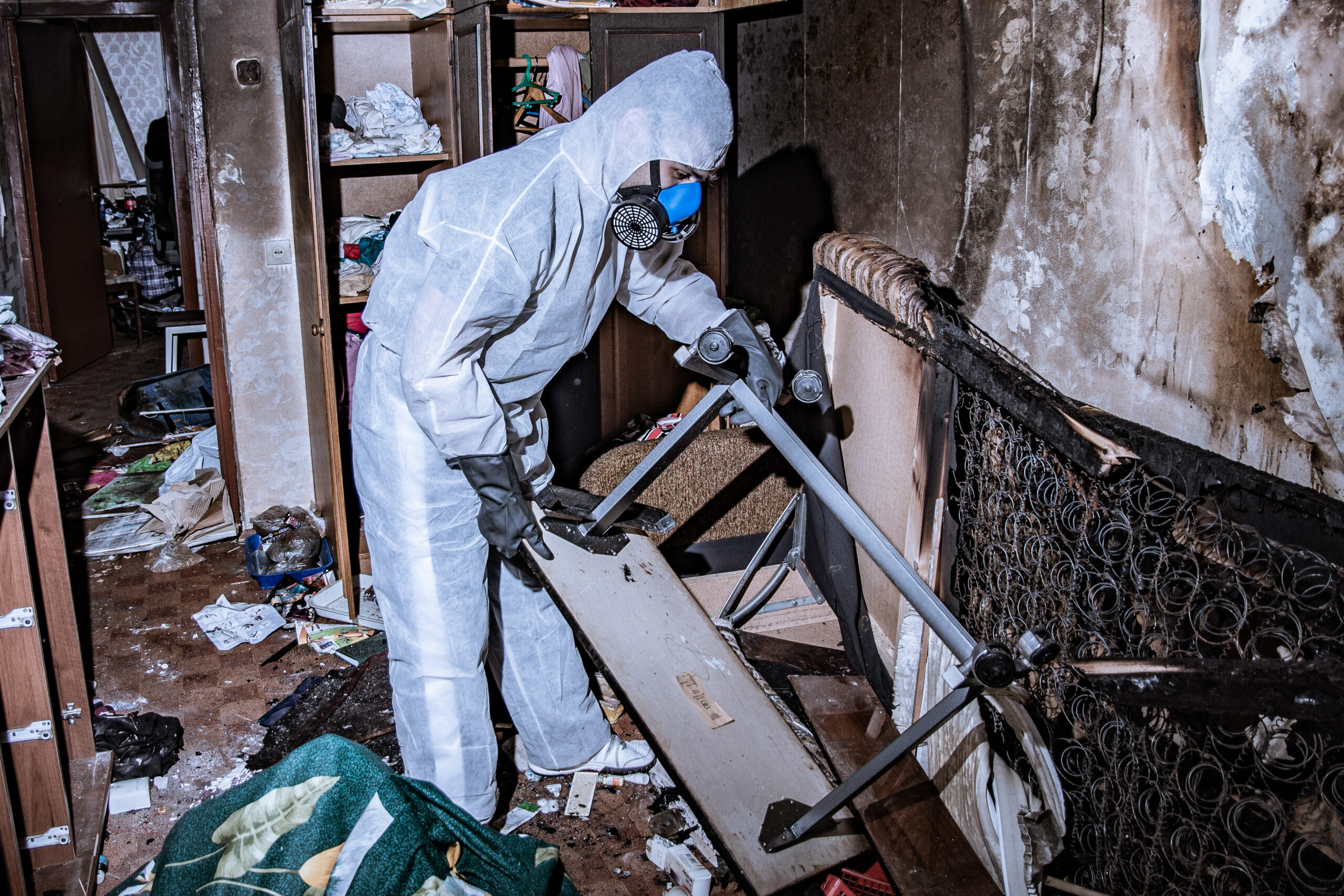Water damage restoration is a crucial process that property owners must be familiar with to protect their investments and ensure the safety of occupants. This post will look into the details of water damage repair, giving useful knowledge on how to spot and tackle problems efficiently.
We will explore the step-by-step process involved in restoring your property after water damage, including identifying the source of damage, removing standing water using extraction methods, and drying out affected areas. Additionally, we’ll discuss why professional services are essential for maintaining a safe living environment and addressing severe structural problems.
Then, this post about water damage restoration will cover preventive measures against future occurrences such as basement waterproofing techniques and reducing drying time with eco-friendly chemicals. We’ll also guide you in choosing suitable service providers by considering factors like 24/7 availability and IICRC-certification standards.
Last but not least, we’ll touch upon flood insurance policies that can offset repair costs while ensuring peace of mind for homeowners in high-risk zones. Finally, we’ll emphasise the importance of regular maintenance checks on residential properties as well as managing risks associated with commercial property tenants.
Table of Contents:
- Water Damage Restoration Process
- Importance of Professional Water Damage Restoration Services
- Preventive Measures Against Future Occurrences
- Choosing Suitable Service Providers
- Flood Insurance and Financial Assistance
- Regular Maintenance Checks & Commercial Property Risks
- FAQs in Relation to Water Damage Restoration
- Conclusion
Water Damage Restoration Process
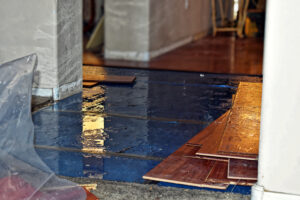
Eliminating the source of water damage is essential to restoring your property; thus, swift action should be taken.
Identify the source of water damage
Pinpoint the origin of the issue, be it a broken pipe or a malfunctioning washing machine, and act swiftly to stop additional harm.
Remove standing water with extraction methods
Use pumps or wet vacuums to eliminate standing water and prevent mould growth that could lead to health issues.
Dry out affected areas with fans and desiccants
- Use high-speed air movers to circulate air and dry surfaces like walls and floors.
- Dehumidifiers absorb moisture from the air, reducing humidity levels in enclosed spaces.
Repair damaged materials in domestic and commercial properties
Repair or replace damaged building materials like flooring or drywall to restore your property’s aesthetics and maintain safe working conditions.
Don’t let water damage get you down – take action and restore your property with the help of a certified water damage restoration company.
Importance of Professional Water Damage Restoration Services
One in 50 homes file a water damage insurance claim every year, making it crucial to understand the significance of professional water damage restoration companies.
Maintaining a Safe Living Environment
Hiring experts to fix any water damage issue ensures that all affected areas are cleaned and disinfected, preventing potential health hazards like mould growth.
Addressing Severe Structural Issues
- Burst pipes: Timely intervention from professionals helps minimise long-term effects on building materials.
- Flooding: Expert teams with proper restoration certification handle clean-up operations efficiently.
- Rainstorms: Experienced technicians identify issues early on before they escalate into costly repairs.
- Affected appliances: Qualified service providers offer prompt solutions to prevent further deterioration caused by malfunctioning washing machines or dishwashers.
By entrusting your water damage restoration needs to a reputable company, you can ensure that the job is done correctly and efficiently, safeguarding your property from long-term issues and providing peace of mind.
Preventive Measures Against Future Occurrences
Take steps to avoid potential water damage and its associated expenses and disruption in the future.
Basement Waterproofing Techniques for Moisture Control Purposes
Basement waterproofing prevents groundwater infiltration and excess moisture in your home.
Reducing Drying Time with Eco-Friendly Chemicals
Use eco-friendly chemicals designed for drying purposes to speed up the drying process while minimising environmental impact.
- Gutter Maintenance: Regularly clean gutters and downspouts to ensure proper drainage away from your property’s foundation.
- Routine Plumbing Inspections: Have a professional plumber inspect pipes periodically for signs of wear or leakage.
- Appliance Maintenance: Regularly check appliances like washing machines and dishwashers for any signs of wear or leaks.
These preventive measures protect your property from water-related disasters and provide peace of mind.
Choosing Suitable Service Providers for Water Damage Restoration
Choosing the right water damage restoration company is crucial to ensure your property gets the best possible care and repair.
- Consider 24/7 availability, prompt emergency response times, and dedicated customer support departments.
- Look for IICRC-certified professionals to ensure high industry standards are met throughout each project stage.
- Read reviews or ask for recommendations from friends or family members who have experienced similar issues.
Standing water can quickly lead to structural damage and mould growth if not addressed immediately, so choose a company that offers rapid response times and operates on a 24/7 basis.
An IICRC-certified technician has undergone extensive training in various aspects of water damage restoration, including how to remove standing water efficiently, prevent mould growth, and address affected areas safely.
Choosing a company with certified professionals ensures that your property will receive top-quality care while adhering to strict industry guidelines.
Remember, the right water damage restoration company will not only help you get your property back to its pre-damage condition but also provide valuable advice on preventive measures to protect against future incidents.
Flood Insurance and Financial Assistance
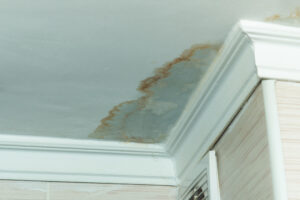
Protect your assets from water damage disasters with flood insurance, especially if you live in high-risk zones.
Flood insurance covers damages caused by flooding or heavy rainfall, which are not typically included in standard home insurance plans.
Investing in a suitable policy tailored to your needs can save you thousands on potential water damage restoration costs.
Financial support is available to homeowners living in areas prone to floods, offering invaluable peace of mind.
Some insurers even offer preventative measures like basement waterproofing to reduce the likelihood of future occurrences.
- Maintain Property Value: Adequate flood protection ensures your property maintains its value despite being in a high-risk zone.
- Safety First: Properly insured homes undergo necessary repairs promptly, maintaining safe living conditions and minimising long-term mould growth risks associated with standing water.
- Community Support: Flood insurance policies contribute to the overall resilience of communities in high-risk areas, allowing for faster recovery and rebuilding efforts following a disaster.
Don’t let water damage ruin your life, get flood insurance and ensure your peace of mind.
Regular Maintenance Checks & Commercial Property Risks
Water damage is a costly and disruptive issue for both residential and commercial properties, but regular maintenance checks can help prevent it.
Inspect gutters, rooftops, pipes, and appliances to identify issues before they escalate into more significant problems.
Commercial building managers must also manage risks associated with tenants and employees to reduce the likelihood of water-related incidents.
Educate tenants about proper appliance use, implement regular inspections, and encourage prompt reporting of issues.
Proactive measures like maintenance checks and effective risk management strategies are essential in preventing water damage incidents.
FAQs in Relation to Water Damage Restoration
Is Water Damage Restoration Expensive?
Water damage restoration costs can vary depending on the extent of the damage, materials affected, and required repairs, but on average, homeowners may spend between £1,000 to £4,000 for professional services.
How to Recover from Water Damage?
To recover from water damage, act quickly, identify the source of the problem, stop further leakage, remove standing water, dry out affected areas, clean and disinfect surfaces, repair damaged materials, and hire a professional surveyor if necessary.
Can Water Damage Be Repaired?
Yes, most types of water damage can be repaired by following proper procedures such as removing excess moisture, drying out affected areas thoroughly, cleaning and sanitising surfaces exposed to contaminated waters, but structural issues, mould growth, or extensive damages might require expert assistance.
What Is the Difference Between Restoration and Remediation?
Restoration aims at returning property to its pre-damage condition through repairing or replacing damaged items while remediation focuses on stopping potential health hazards caused by contaminants present due to excessive moisture levels.
Protect your property with water damage restoration services – a crucial step for homeowners, commercial building managers, and property owners to prevent disasters.
Don’t wait until it’s too late – act fast with our prompt emergency response times to minimise damage and costs from any water damage issue.

